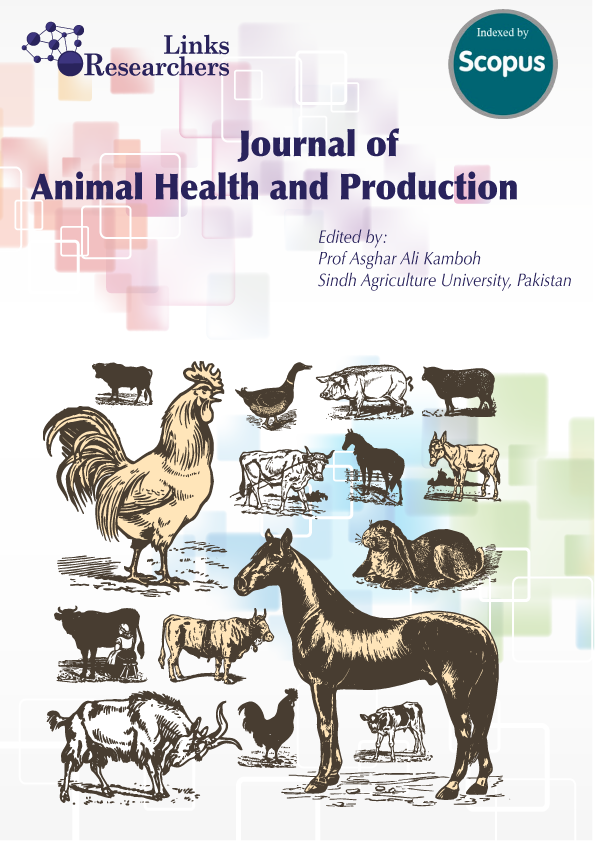Influence of Microalgae Nannochloropsis oculata on Blood Constituents, Reproductive Performance and Productivity in Hi-Plus Doe Rabbits Under North Sinai Conditions in Egypt
Influence of Microalgae Nannochloropsis oculata on Blood Constituents, Reproductive Performance and Productivity in Hi-Plus Doe Rabbits Under North Sinai Conditions in Egypt
Ibrahim Samir Abd El-Hamid1*, Wafaa Adel Abd Fouda1, Hesham Attia Shedeed1, Safaa Ali Mostafa1, Ahmed Mohamed Elbaz2, Salah Abo Bakr2, Baliegh Hamdy Mosa1, Ali Saber Morsy1, Amal Mohamed Hasan1, Khamis Refaay Emam3
ABSTRACT
The goal of this study is to determine the effect of supplementation microalgae Nannochloropsis oculata on blood constituents, total antioxidant capacity, reproductive performance and productivity of Hi-Plus doe rabbits under North Sinai conditions. Forty-five Hi-Plus doe rabbits aged 5 months and body weight with an average of 3060.2±21.0 g were used from June to September 2020. Does were randomly divided into three equal groups, n= 15 for each group. The 1st treatment (Tr1), served as control. The 2nd treatment (Tr2), received 5 g of microalgae N. oculata / kg basal diet. The 3rd treatment (Tr3), received 10 g of microalgae N. oculata /kg basal diet during experimental period. Blood samples were monthly collected from all animals to determine some blood biochemical constituents, blood minerals and hormonal profiles. Reproductive and productive performance were evaluated. The results showed that total protein (TP) and globulin (GLO) concentrations increased (P<0.05) in treatment groups compared with control. Levels of albumin (ALB) and aspartate aminotransferase (AST) decreased (P<0.05) in Tr2 compared with Tr3 or Tr1. While alanine aminotransferases (ALT) and creatinine (CRA) concentrations decreased in treated groups compared with control. Value of total antioxidant capacity (TAC) increased (P<0.05) in treaded groups compared with control. Serum phosphorus (P) increased (P<0.05) in treated groups compared with control, while calcium (Ca) level increased slightly in treated groups. Progesterone (P4) hormone increased (P<0.05) in treated groups compared with control, while triiodothyronine (T3) increased (P<0.05) in Tr2 compared with other groups. Reproductive performance disparity improved significantly in doe rabbits treated by microalgae N. oculata including conception, mortality rates, gestation length and litter size. Productive efficiency index and feed conversion of does significantly improved in treated rabbits as compared to control group. Litter weight at birth and weaning were higher (P<0.05) in rabbits treated with microalgae N. oculata compared to control. In conclusion, supplementation of microalgae N. oculata to rabbit diets has a positive effect on blood constituents and enhance reproductive, productive performance and oxidative status of Hi- Plus doe rabbits.
Keywords | Rabbits, microalgae Nanochloropsis oculata sp., Reproductive performance, Productivity, Blood constituents.
To share on other social networks, click on any share button. What are these?





